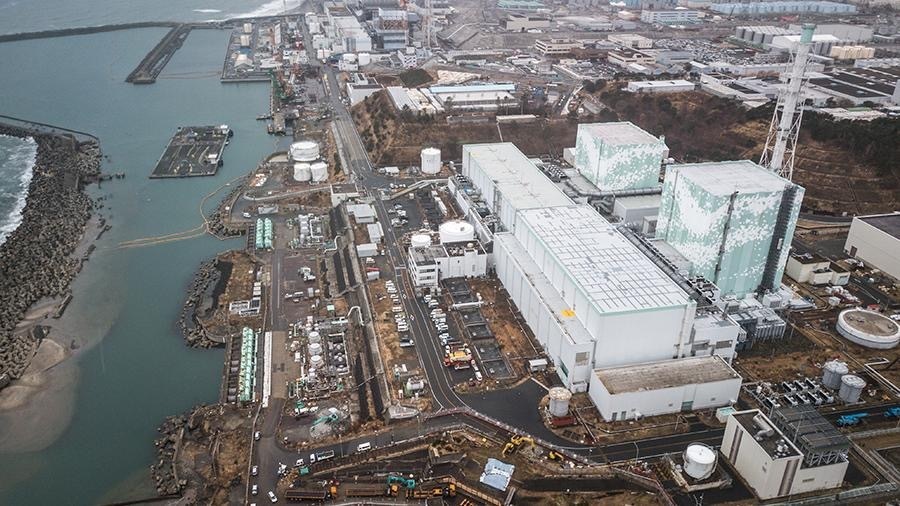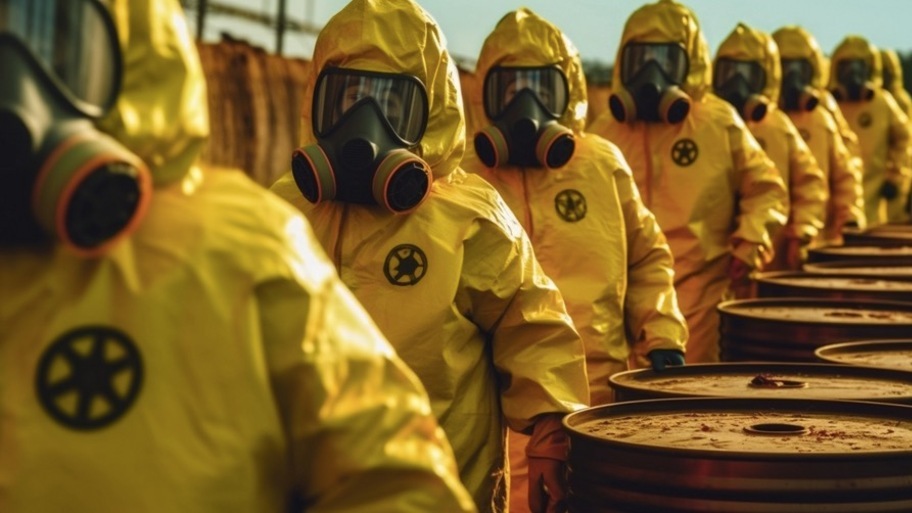Posted 24 августа 2023, 15:26
Published 24 августа 2023, 15:26
Modified 25 августа 2023, 06:42
Updated 25 августа 2023, 06:42

Tritium of discord: what is dangerous for Russia to dump radioactive water from the Fukushima nuclear power plant
Elena Petrova, Natalia Seibil
After the accident and destruction of 3 of the 4 reactors in Fukushima after the tsunami and earthquake in 2011, the Japanese authorities and the owners of the nuclear power plant — Tokyo Electric Power Company — faced a problem that they could not solve completely.


The problem is the water that cooled the reactors
Huge volumes of polluted water accumulated on the territory of the destroyed plant, which was used to cool the reactors. We are talking about 1.34 million tons, which could be it would fill 540 Olympic stadiums. This liquid is stored in thousands of steel containers. Since 2021, TEPCO, which owns a nuclear power plant and is engaged in eliminating the consequences of the millennium accident, after which, for example, the first EU economy — Germany — abandoned nuclear energy, the best minds are racking their heads what to do with water.
650 million dollars were spent on cleaning only 74 thousand tons of water from the 4th exploded reactor. The company does not say how much money was spent on the rest of the water, but it can be assumed that we are talking about billions.
Since 2021, the Japanese have been negotiating with the IAEA and asking for their consent to dump supposedly purified water into the ocean. Vladimir Chuprov, an expert in the field of environmental protection, confirmed to NI that some of the radionuclides can be removed during cleaning, but not all:
— A lot of water was used to cool the emergency reactors, the generators did not work, external water was supplied. As a result, a lot of water accumulated, which came into contact with the cooling reactors. This water was cleaned. They have significantly reduced the concentration of such dangerous radionuclides as cesium 131 and strontium 90, which is what accompanies emergency emissions at civilian reactors. But there was tritium left. This is a molecule that looks like water, it is very poorly caught using filters that are traditionally used in industry.
Now experts are debating whether this is enough or not.
What concentration of tritium is dangerous for humans
The International Atomic Energy Control Agency has confirmed that the tritium concentration is well below the «operational maximum of 1,500 becquerels per liter.» The permissible values of tritium are 40 times lower than the Japanese safety standard and 7 times lower than the WHO permissible limit for drinking water (10,000 becquerels per liter).
«The IAEA notes that controlled gradual discharges of purified water into the sea… will have a minor radiological impact on people and the environment,» the head of the IAEA assured the world community.
But this did not convince the neighboring countries of Japan. If in South Korea the government was silent, agreeing with the agency's conclusions, then residents of the peninsula, students and fishermen who live by fishing, came out to numerous demonstrations.
In China, this has acquired a different scale — the leadership of the world's second economy categorically did not like the decision. The Chinese accused Japan of arranging sewage from the ocean, and banned the sale of Japanese fish and seafood. Former Minister, Russian scientist, hydrologist, corresponding member of the Russian Academy of Sciences Viktor Danilov-Danilyan believes that if at least one country in the region has objections and doubts about the decisions approved by the IAEA, this decision alone is clearly not enough:
— I do not understand why this issue is not raised at the UN, if it cannot be resolved below. This international environmental assessment should include specialists, representatives of all countries that have something to do with it. For example, those countries whose shores extend into the North Pacific Ocean. These are China, both Koreas, the USA, and Russia. This is at least. But not only these mills. The same Indonesia and the same Philippines have every right to apply for participation in such an examination. And the conclusion of this examination must necessarily be considered by the UN in order to resolve this issue — to allow dumping or not to allow it. If at least one country objects to such a reset. But we are having a bad time with international procedures right now. If all the mentioned countries accept, so be it. If one country objects, the IAEA control is not sufficient.
Independent expertise is required
Vladimir Chuprov also believes that it is necessary to allow independent scientists to the place of water discharge. In addition, it is necessary to organize the inspection of fish in all markets where the products are supplied. We need to assess the currents in this area of the Pacific Ocean, and most importantly, we need to understand where tritium will accumulate. Water entering the ocean is diluted, but radionuclides will undoubtedly settle somewhere:
— The dilution process is opposed by the accumulation process, as a result of which radionucleides are not diluted, but concentrated in animal and plant organisms. The main problem is precisely in this radionucleide. Bioaccumulation is the accumulation of radionucleides in plants, and further down the chain — in fish. Then the question is in what volumes, with what dilution, with what current and at what depth the discharge will be carried out and how the local ecosystem is represented. These are plants, everything related to fishing and algae extraction. This requires, of course, the assessment of biologists and sampling in order to understand what effect can be expected as a result of contamination of marine animals and plants with these radionucleides.
There are scientists who are calm about the upcoming ingress of 1 million tons of water with tritium into the World Ocean. Vladimir Exarian, Doctor of Sciences, Head of the Department of Ecology and Nature Management of the Geological Exploration University, believes that the event itself is barbarism towards nature, but he does not expect any special consequences.:
— As a rule, biots are calm about this. There were cases when radiation got into the places where spawning was carried out, or a large amount of marine biota was concentrated, it reacted as inadequately as after the Chernobyl accident, when mushrooms weighing up to 5 kg grew in the places of infection. That is, there was an increase in the population. No one tracked anything further. When this fish was caught, no one recorded that it was infected. The population was simply increasing.
According to Vladimir Exarian, oil pollution is a much greater danger. Oil spills will not dissolve, they can only not be allowed to coastal areas, where otherwise all fish and other biota will die out. What cannot be pumped out gets into the bottom sediment and continues to poison the sea.
However, Viktor Danilov-Danilyan does not look so calmly into the future. Russia has experience in the disposal of radioactive waste. Even with the normal operation of nuclear power plants, waste is a problem. And what can we say about such an accident as at Fukushima?
— The extent to which liquid radioactive waste is generated at nuclear power plants and in the nuclear industry in general, they are beyond the power of such a system. What happened at Fukushima is absolutely beyond our strength. There are no forces and means to recycle this water. You can sit and watch what happens next. Like hell it will evaporate, because something that evaporates is replenished by precipitation,
Vladimir Kuznetsov, ex-head of the Inspectorate for Supervision of Nuclear and Radiation Safety of Atomic energy facilities of the USSR Gosatomnadzor, gives an even more gloomy forecast. In an interview with Moscow Speaks, he said that toxic substances will destroy fish and marine life in the Sea of Okhotsk:
«We do not have a system of environmental and radiation monitoring of water in the Far East, which should have been introduced back in 1994. I don't give a damn that this water will come in The Sea of Okhotsk, and we have red fish and red caviar spawning there. We will lose fishing for 150 years. Tritium (a radioactive isotope of hydrogen) in the volumes that exist, you think about the figure, 1.5 million cubic meters, for 10 years the Japanese will drop it uncontrollably.»
And then who will be responsible? The IAEA? But you can't restore fish stocks either.
